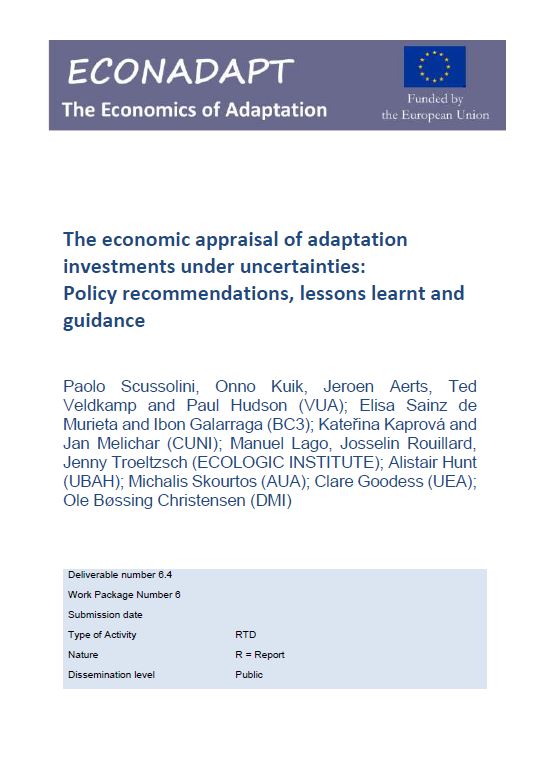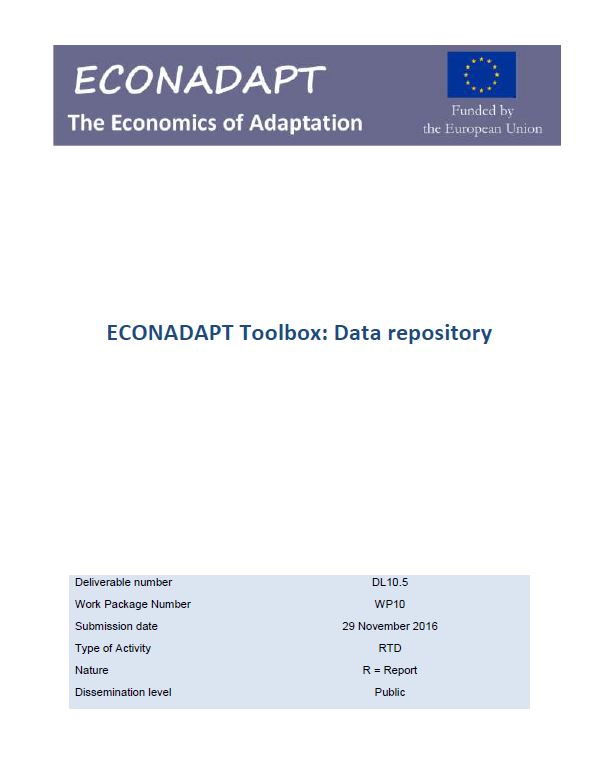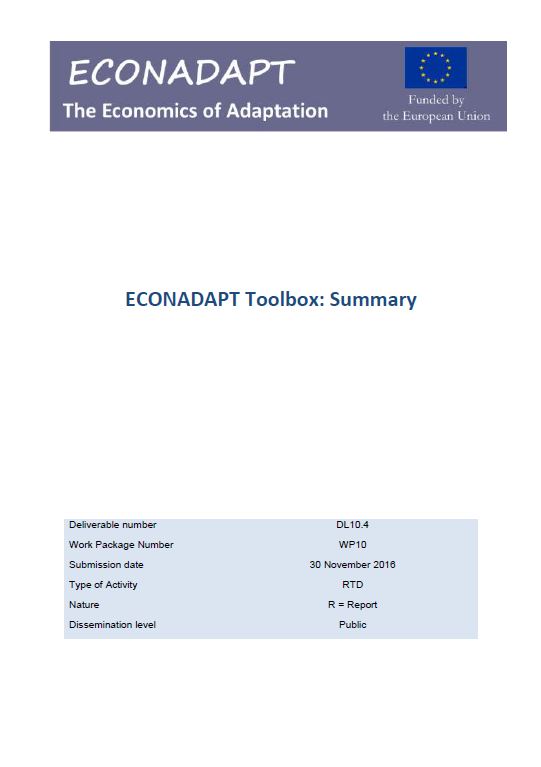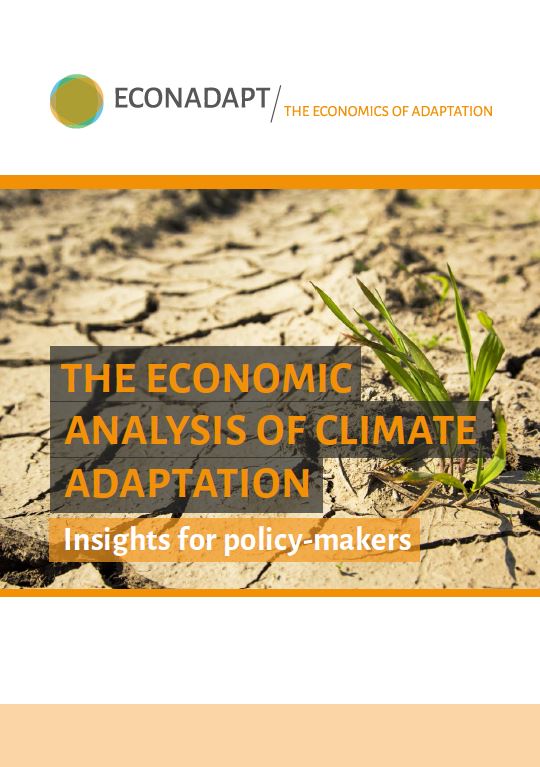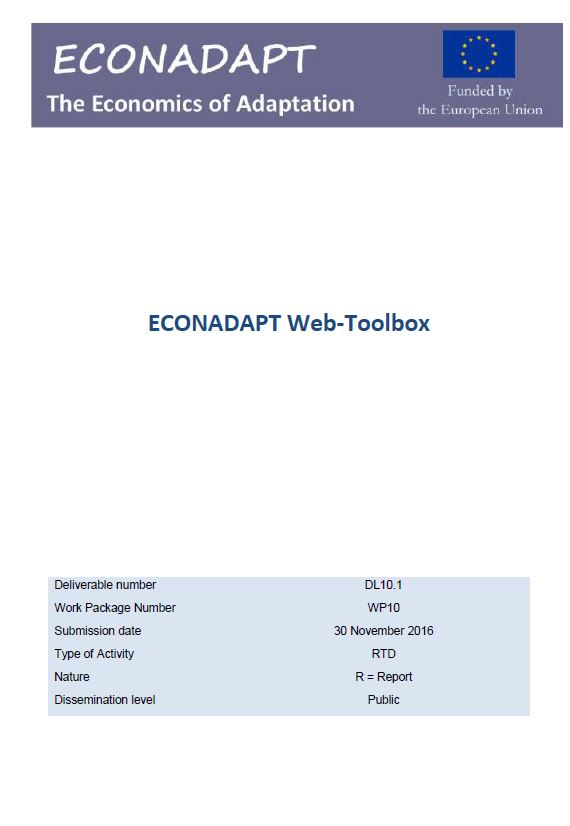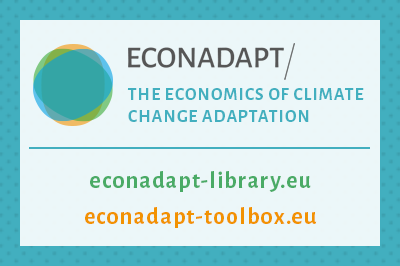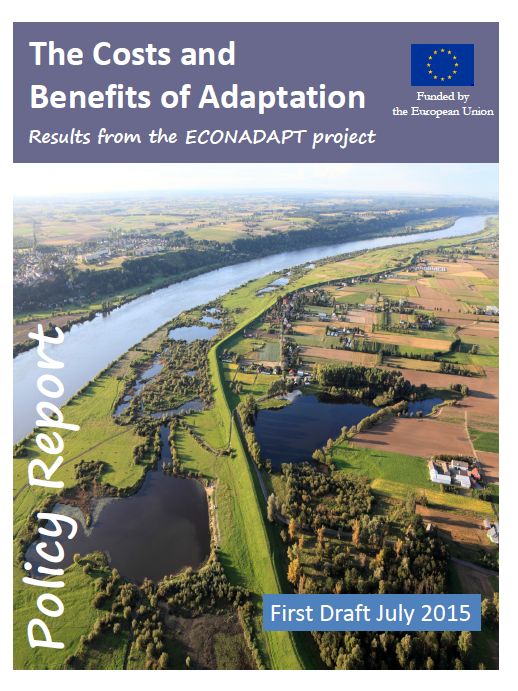The ECONADAPT project, on the Economics of Adaptation, was a research project funded by the European Union Seventh Framework Programme (FP7). Recognizing that there is an economic rationale for climate change adaptation, the ECONADAPT project set out to advance the knowledge and evidence base on the economics of adaptation and to develop practical material to support decision-making processes. ECONADAPT applied adaptation economics in several decision-making scenarios that could require economic information including risk management, project appraisal, impact assessments and planning processes. Throughout the project, innovative methods were co-developed and tested in a participative way with diverse stakeholders engaged in adaptation policy at multiple governance scales.
Background – From Theory to Practice
As climate change adaptation moves from theory to practice, more detailed economic analysis is needed. This need is recognised internationally, in particular by the EU Strategy on adaptation to climate change. However, the economics of adaptation remains a relatively new field and multiple methodological challenges exist. For example, methods to deal with managing uncertain-ties, long term decision-making, or the cost-benefit analysis of non-engineering measures continue to pose challenges to decision makers and economists alike. Prior to the ECONADAPT project, most research on the economics of adaptation was undertaken within an abstract and theoretical framework and therefore was insufficient to meet the practical needs of decision makers.
Objective – Economic Appraisal Criteria for Adaptation Actions
The objectives of ECONADAPT were to build the knowledge base on the economics of adaptation to climate change and to convert this into practical information for decision makers, to help support adaptation planning. The project has had a strong element of stakeholder engagement and co-production and has organised the research around two questions / work streams:
- What are the key methodological advances needed to improve the economic assessment of adaptation?
- What are the big adaptation decisions facing Europe in the next decade where these improved economic methods could be applied?
OUTCOMES
The ECONADAPT project has developed a policy led approach to frame the research and policy analysis. This focuses on the practical application of adaptation economics to near-term adaptation decisions, using iterative risk management and prioritising low-regret options. The project has collated the knowledge base on the costs and benefits of adaptation and published it as a chapter in an OECD-report, as a Policy report and as a web based library.
The project has made methodological advances in a range of areas. It has developed adaptation economic methods for assessing adaptive capacity, developed methods for the scaling, transfer and aggregation of cost and benefit values and has applied decision-making under uncertainty to adaptation economics. The ECONADAPT project has applied these methodological advances to a series of policy domains, considering the major priorities for adaptation economics over the next decade.
It has considered the bottom-up costs and benefits of addressing the increased frequency of weather related disasters from climate change, and complemented this with analysis of the fiscal consequences of climate change exacerbating current national level disasters. It has developed guidance for economic project appraisal, including case studies that consider river flooding and sea-level rise. It has also developed guidance for policy appraisal (impact assessment) with an agricultural case. The project has looked at the wider economic effects of both market-driven and planned adaptation, undertaking macroeconomic modelling to assess the economic consequences of adaptation from a top-down perspective. It has also developed the project and policy appraisal frameworks for application in the developing country context, including practical case studies.
Ecologic Institute in ECONADAPT
Ecologic Institute was involved in several tasks in ECONADAPT. It led the development of the ECONADAPT Toolbox (incl. guidance documents) and the ECONADAPT Library.
The ECONADAPT Toolbox provided easy access to information on the economic assessment of adaptation actions. It provided in particular information on methodologies, data and evidence through case studies.
The ECONADAPT Library was an online collection of grey and academic literature that deals with the economics of adaptation. The Library was a living database that continued to accept submissions from external authors.
Ecologic Institute was also involved in the review of the costs and benefits of adaptation and methodological developments for the measurement of non-monetary values, distributional parameters, and improved representation of spatial, temporal and sectoral dimensions. Furthermore, Ecologic Institute was involved in the application of new methods for the economic appraisal at project level.




